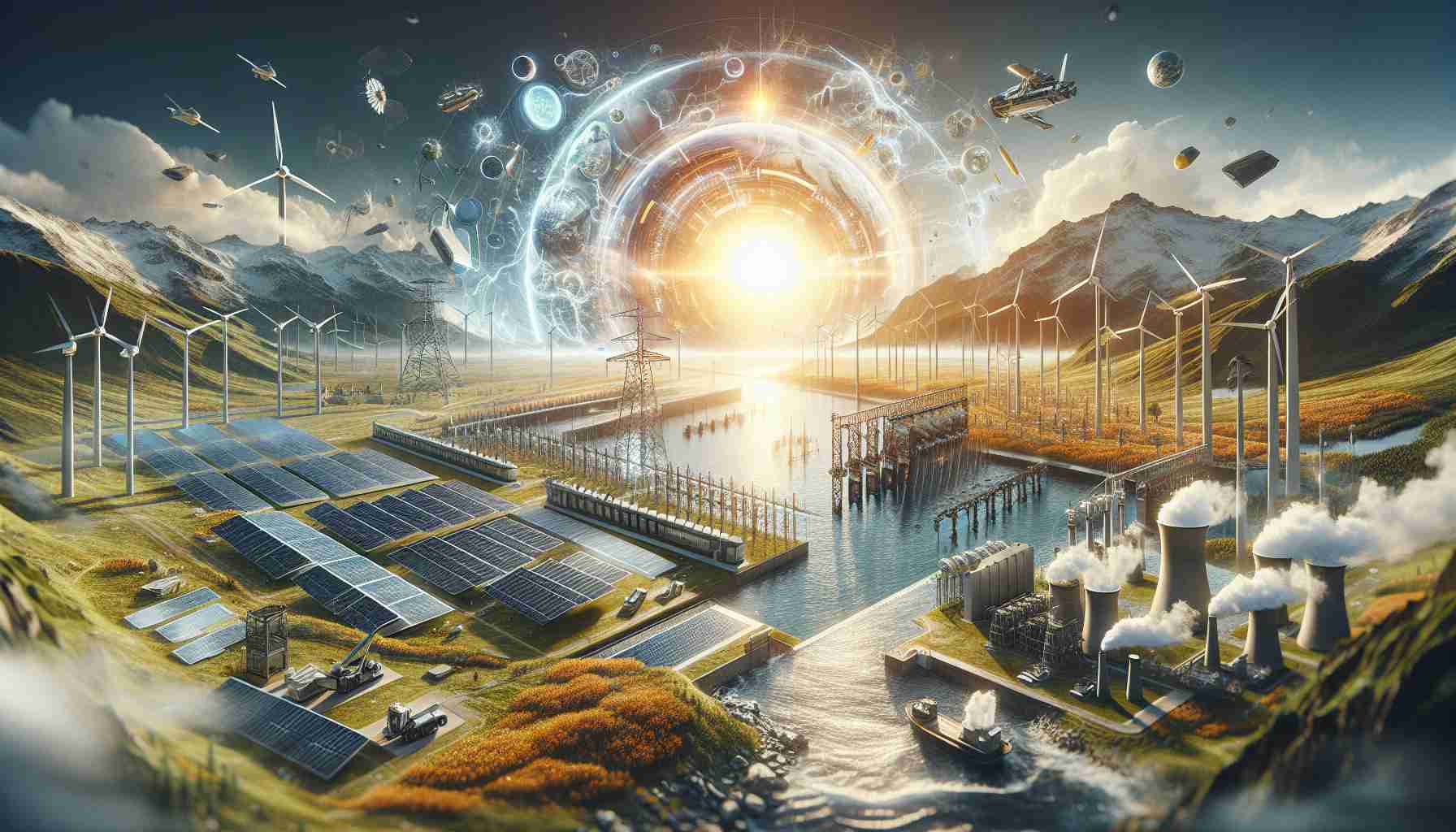The Future of Energy is Here
Innovation within renewable energy is advancing at a remarkable pace, bringing with it exciting possibilities for a sustainable future. Recent studies reveal that emerging technologies are paving the way for more efficient energy solutions, a significant leap forward for our planet.
Solar and wind power have long been at the forefront of renewable sources, but groundbreaking research is showcasing enhancements in energy storage and distribution. These developments are crucial for addressing the intermittent nature of renewable energy, allowing for a more reliable supply.
In addition, advances in hydrogen energy have caught the attention of industry leaders. The ability to produce hydrogen sustainably can offer a versatile alternative to traditional fossil fuels, demonstrating promising potential in both transportation and industrial applications.
Investments in these technologies are increasing, with government backing and private sector enthusiasm driving innovation. This collaborative effort is essential for tackling climate change and reducing greenhouse gas emissions effectively.
As nations and companies pivot toward cleaner energy sources, the global landscape is set for a transformation. The shift not only promises economic benefits but also positions the planet for a healthier future.
Stay tuned to witness how these technological advancements will shape the way we produce and consume energy in the coming years, making an enduring impact on our environment.
Unlocking Sustainable Energy: Innovations and Insights for the Future
The Future of Energy
The remarkable pace of innovation in renewable energy is generating transformative possibilities for a sustainable future. Various technologies are emerging to make energy production and consumption more efficient, representing significant advancements for our planet.
Innovations in Renewable Energy
While solar and wind power have traditionally led the renewable energy sector, new developments in energy storage and distribution are revolutionizing the landscape. Here are some key innovations:
– Advanced Battery Technologies: Innovations such as solid-state batteries and flow batteries are enhancing energy storage capabilities. This allows for longer storage periods and quicker access to renewable energy during peak demand times.
– Smart Grids: The integration of smart grid technology allows for better management of electricity supply and demand, helping mitigate the intermittency issues faced by solar and wind power.
Hydrogen Energy: The Versatile Alternative
The rise of hydrogen energy has become a focal point for renewable energy development. Key aspects include:
– Green Hydrogen Production: Using renewable energy sources, such as wind or solar, to produce hydrogen through electrolysis is gaining traction, allowing it to serve as a clean fuel option.
– Applications in Transportation and Industry: Hydrogen fuel cell vehicles are being developed as a zero-emission alternative to gasoline and diesel engines, while industries are exploring hydrogen to decarbonize processes like steel production.
Economic Impacts and Investments
Investment in renewable energy technologies is on the rise, driven by both government initiatives and private sector interests. Some trends include:
– Increased Investment: A growing number of countries and organizations are pledging financial resources towards renewable energy projects, including research and development funding for nascent technologies.
– Job Creation: The shift to renewables is expected to generate millions of new jobs in sectors such as research, manufacturing, and installation.
Challenges and Limitations
While the future looks promising, several challenges remain in pushing renewable energy adoption forward:
– Infrastructure Needs: Upgrading existing energy infrastructure to accommodate new technologies requires significant investment and time.
– Policy and Regulation: Varying government policies and regulatory frameworks can impede uniform progress in renewable energy market adoption worldwide.
Sustainability and Security Aspects
Renewable energy holds significant sustainability advantages, but security aspects must also be considered. As energy systems become more interconnected, there is a greater need for robust cybersecurity measures to protect against emerging threats.
What to Expect in the Coming Years
Experts predict that the next decade will witness unprecedented advancements in renewable energy technologies, further contributing to reductions in carbon emissions and supporting climate change initiatives.
– Increased Efficiency: Future technologies are expected to optimize energy conversion and storage efficiency, making renewable energy sources more competitive against fossil fuels.
– Global Collaborations: International partnerships may emerge as nations collaborate to share knowledge and resources in renewable energy development.
Stay updated on how these innovations are shaping the energy landscape and impacting our planet. Discover more about the future of energy at NREL.
FAQs about Renewable Energy Innovations
Q: What are solid-state batteries?
A: Solid-state batteries utilize a solid electrolyte instead of a liquid one, offering higher energy density and greater safety.
Q: How is hydrogen produced sustainably?
A: Sustainable hydrogen is produced via electrolysis using renewable energy to split water into hydrogen and oxygen, resulting in a carbon-free process.
Q: What role do smart grids play in renewable energy?
A: Smart grids enhance the efficiency of energy distribution and consumption, enabling better integration of renewable energy sources.
Q: What are the economic benefits of investing in renewable energy?
A: Investing in renewables can drive job creation, lower energy costs, and stimulate economic growth through new industries and technologies.
